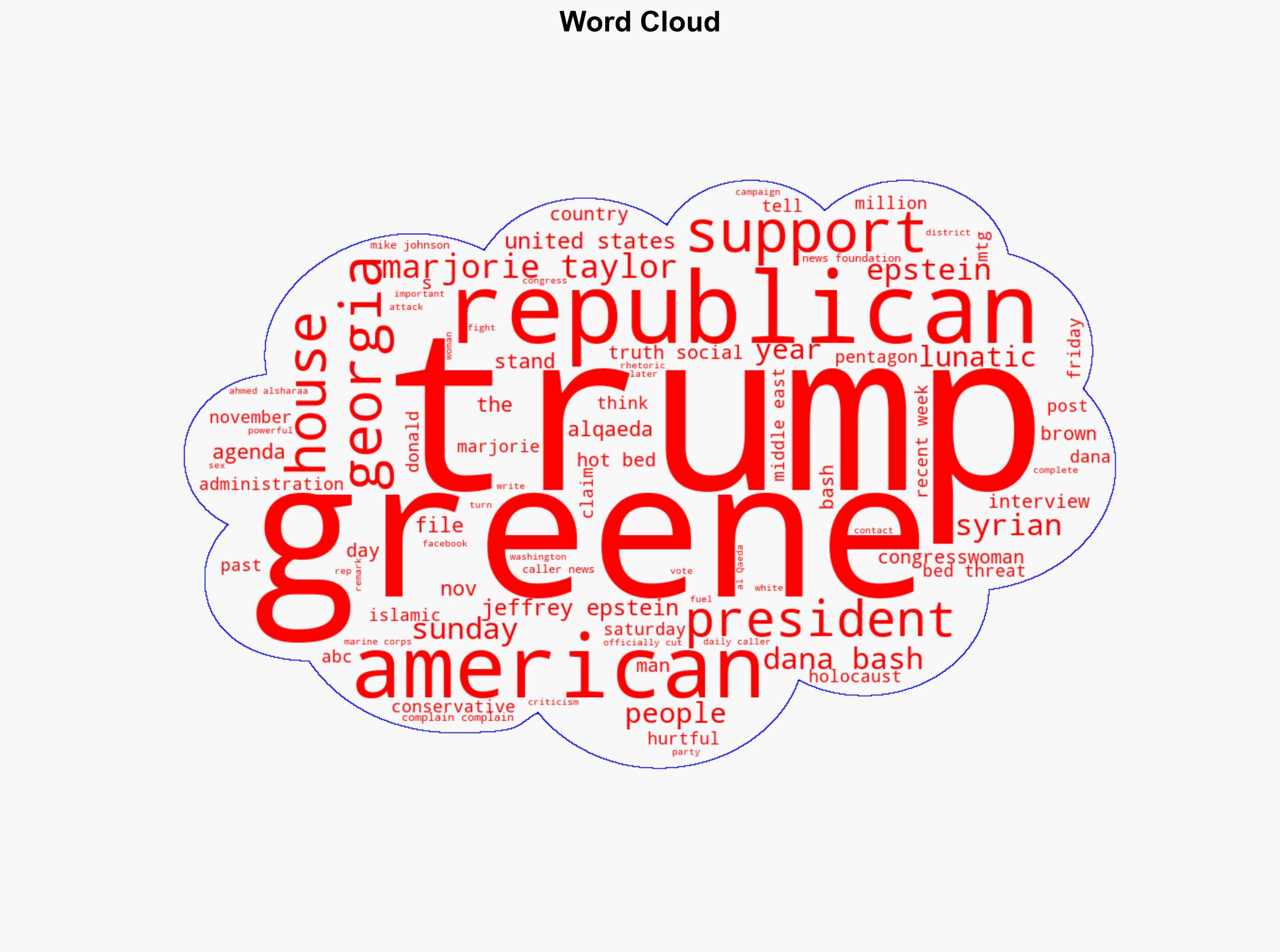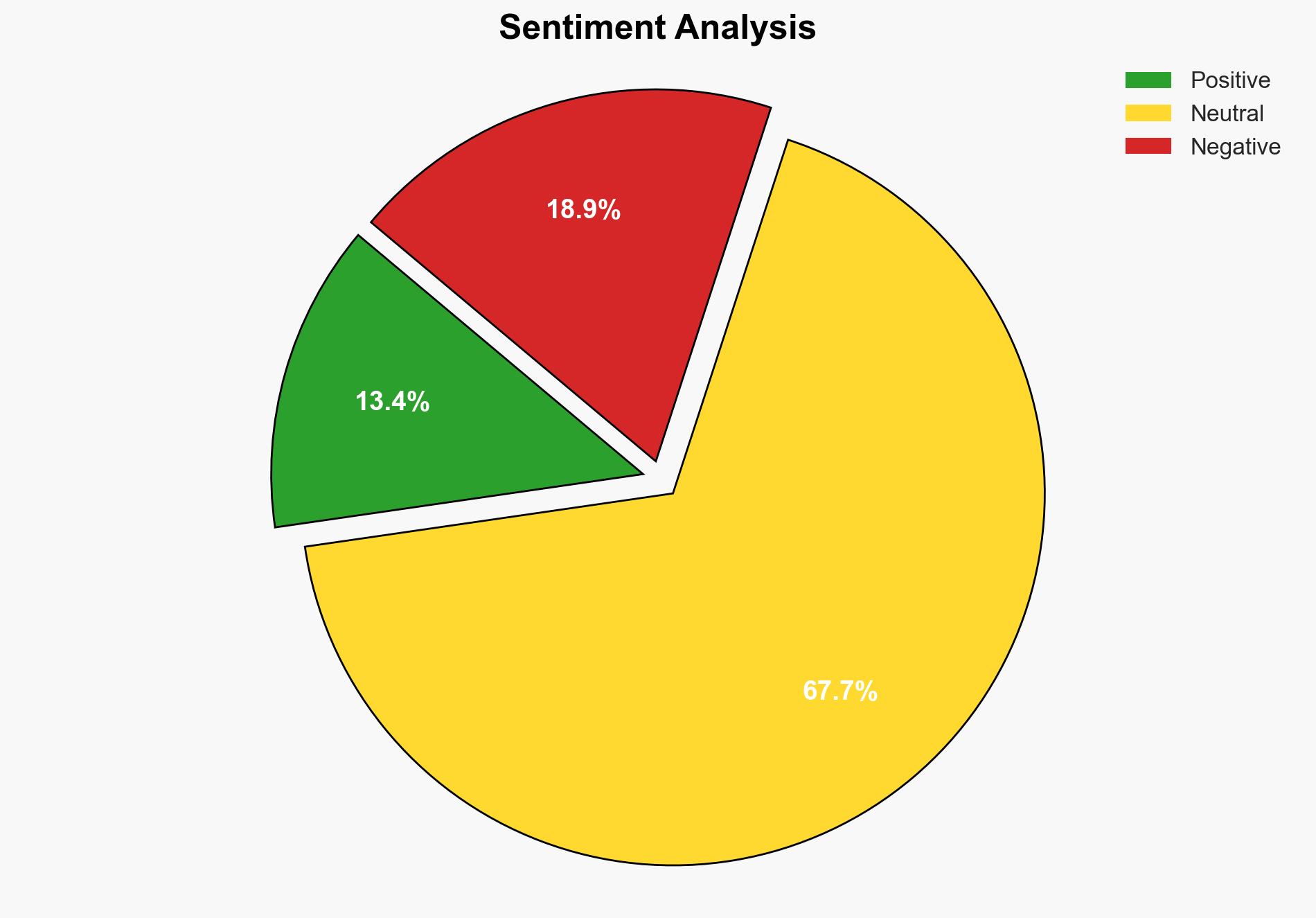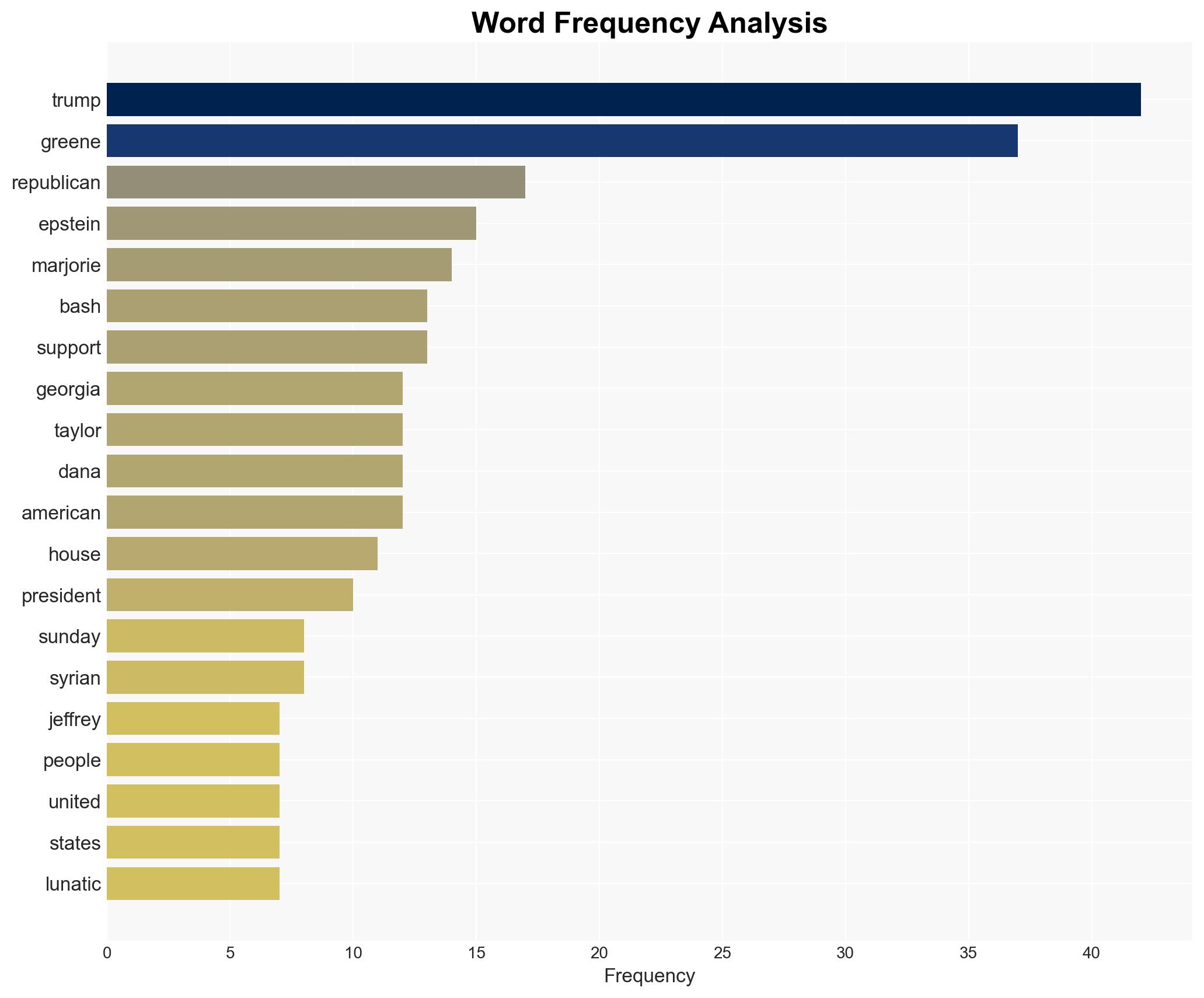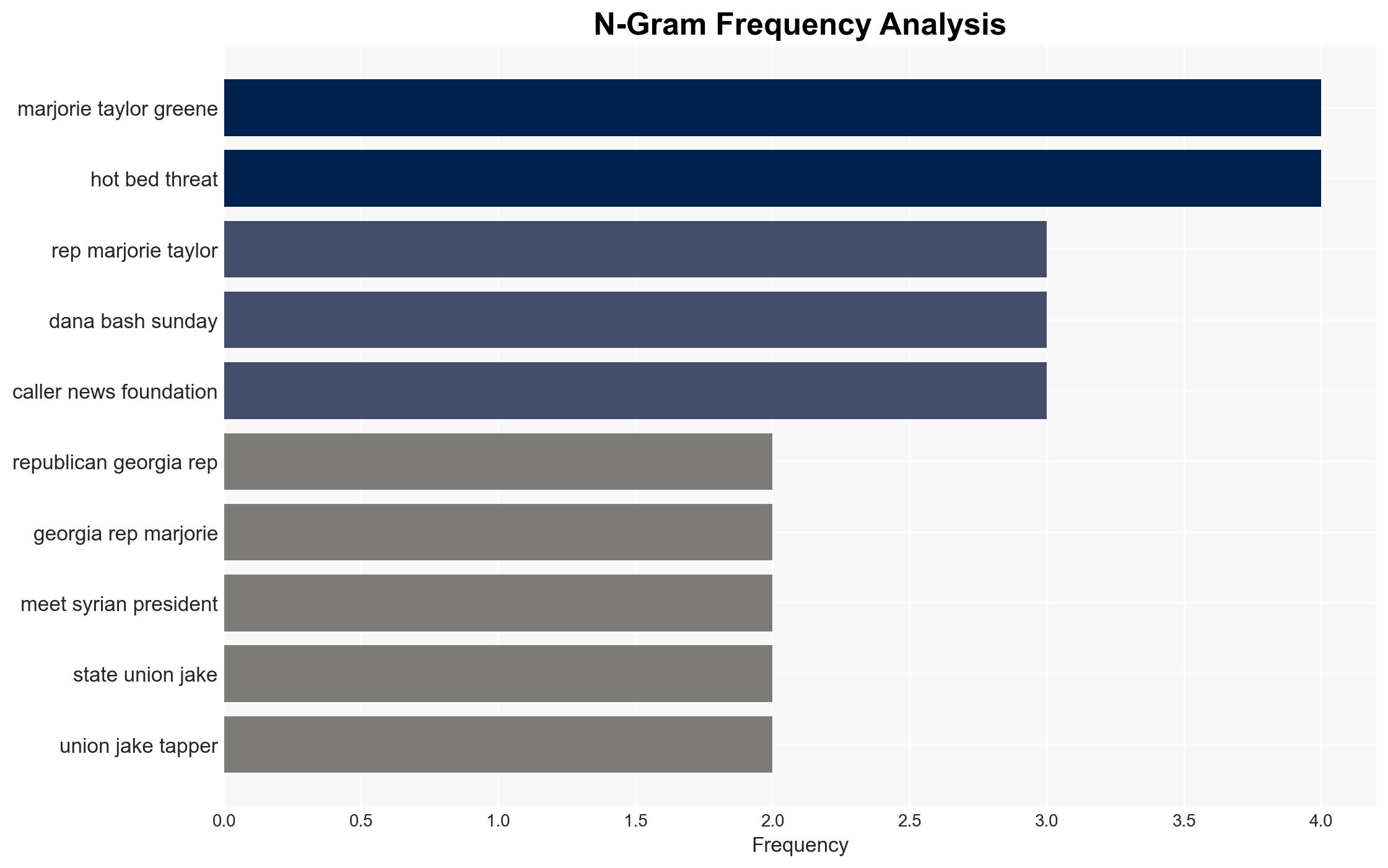Called Me A Traitor MTG Holds Trumps Feet To The Fire Over Epstein Files Honoring Terrorist – The Daily Caller
Published on: 2025-11-16
AI-powered OSINT brief from verified open sources. Automated NLP signal extraction with human verification. See our Methodology and Why WorldWideWatchers.
Intelligence Report:
1. BLUF (Bottom Line Up Front)
With a moderate confidence level, the most supported hypothesis is that the conflict between Marjorie Taylor Greene (MTG) and Donald Trump is primarily a strategic maneuver by MTG to distance herself from controversial associations and align with broader public sentiment on transparency and accountability. Recommended action includes monitoring for shifts in political alliances within the Republican Party and preparing for potential impacts on upcoming elections.
2. Competing Hypotheses
Hypothesis 1: MTG’s public criticism of Trump is a strategic move to realign her political stance with a focus on transparency and victim advocacy, potentially to appeal to a broader voter base.
Hypothesis 2: The conflict is primarily a personal fallout due to Trump’s withdrawal of support, with MTG’s actions being reactive rather than strategic, driven by personal grievances.
Hypothesis 1 is more likely due to MTG’s emphasis on transparency and victim support, which aligns with broader societal demands for accountability, suggesting a calculated repositioning rather than a purely emotional response.
3. Key Assumptions and Red Flags
Assumptions: It is assumed that MTG’s statements are sincere and not part of a coordinated deception. It is also assumed that Trump’s withdrawal of support is final and not a negotiation tactic.
Red Flags: The potential for MTG’s statements to be part of a broader strategy to gain media attention and leverage in political negotiations. The possibility of misinformation or selective reporting influencing public perception.
4. Implications and Strategic Risks
The conflict could lead to further fragmentation within the Republican Party, impacting its cohesion and strategy in upcoming elections. There is a risk of increased polarization and radicalization among supporters, potentially leading to security threats. The situation may also affect U.S. foreign policy perceptions, particularly regarding relations with Middle Eastern entities.
5. Recommendations and Outlook
- Monitor MTG’s public statements and actions for indications of shifting political alliances or policy positions.
- Engage in dialogue with key Republican stakeholders to assess potential impacts on party strategy and cohesion.
- Best-case scenario: The conflict resolves with minimal impact on party unity, leading to a stronger, more transparent Republican platform.
- Worst-case scenario: Escalation leads to significant party fragmentation and increased security threats from radicalized supporters.
- Most-likely scenario: The conflict persists but remains contained, with limited impact on broader political dynamics.
6. Key Individuals and Entities
Marjorie Taylor Greene, Donald Trump, Jeffrey Epstein, Ahmed Alsharaa.
7. Thematic Tags
Regional Focus, United States, Republican Party, Political Strategy, Transparency, Radicalization
Structured Analytic Techniques Applied
- Causal Layered Analysis (CLA): Analyze events across surface happenings, systems, worldviews, and myths.
- Cross-Impact Simulation: Model ripple effects across neighboring states, conflicts, or economic dependencies.
- Scenario Generation: Explore divergent futures under varying assumptions to identify plausible paths.
Explore more:
Regional Focus Briefs ·
Daily Summary ·
Support us
·





